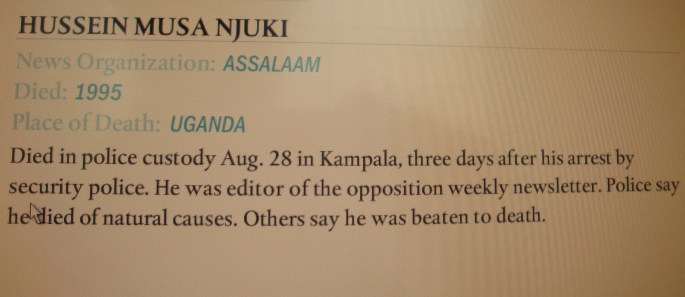This week the third arms trade treaty preparatory committee for the UN Conference on an Arms Trade Treaty (ATT) is seating in New York. The purpose of the PrepCom is to make recommendations on the elements that would be needed to attain an effective and balanced legally-binding instrument on international standards for the transfer of conventional arms. The ATT is to be negotiated in July 2012.
Armtreaty.org has developed a map showing states and where they stand on the different aspects of the treaty that are to be negotiated on.
I looked through to see how African states are doing on a few issues. You can follow the map to track down countries, their positions and voting patterns on the issue.
Armed Violence:
Most of African countries have made expressions of support for considering ‘prevention of armed conflicts/violence’ as a criteria in the Arms Trade Treaty but they are not actively advocating that violations of the criteria should lead to a denial of the transfer, or suggesting their inclusion requires consideration.
Munitions:
Under Munitions: ‘Ammunition’, ‘munitions’ and ‘explosives’ refer to large caliber munitions (e.g. missiles) and small caliber ammunition (e.g. bullets for firearms).
Most of African states have expressed strong support for including ‘ammunition’ or ‘munitions’ in the scope of the Arms Trade Treaty. Apart from Ethiopia and Egypt.
Maritania has not made any statement is publicly about its position on munitions.
Brokering:
Brokering generally refers to arranging or mediating arms deals and buying or selling arms on one’s own account or for others, as well as organizing services such as transportation, insurance or financing related to arms transfers, and the actual provision of such services.
Here most of African countries have no known stand. Most ECOWAS countries have expressed support for the inclusion of ‘brokering’, ‘brokerage’, ‘brokers’ or ‘dealers’ in the scope of the treaty. South Africa, Egypt and DRC only mentioned of brokering and dealing without expressing support. South Africa and Egypt are top of the list of arms production on the continent.
Corruption:
This category maps States’ positions on including as a parameter of the Arms Trade Treaty provisions to restrict transfers that could exacerbate or institutionalize ‘corruption’ or ‘corrupt practices’. In the context of arms transfers, corrupt practices include bribing of state officials with commissions and kickbacks provided by arms producers and traders to facilitate a transfer agreement.
Only Niger, Mali, Burkina Faso, Cote d’Ivoire, Togo and Zambia have given this corruption inclusion a strong backing. Most of the states on the continent have no known stand on corruption in the arms trade and transfer under the treaty.
U.S and China remain one of the few countries strongly opposed to the corruption clause while many countries have remained silent. Many African states lose a lot of money in covert arms trade deals by corrupt state officials which are never known by the citizens.
But also countries are tied in talks on implementation of the treaty.
The major weapon producing and exporting states articulated a vision of a simple treaty that above all ensures that “commerce”— the sale of weapons—is unhindered by stringent transfer criteria or robust treaty implementation measures. To this end, the five permanent members of the UN Security Council (P5: China, France, Russian Federation, United Kingdom, and United States), along with Canada and India, stipulated that the implementation provisions should be “simple, short and easy to implement.” Arguing against the inclusion of any specific implementation measures, the P5 said, “Domestic implementation in accordance with national legislation and regulations in line with the obligations that would arise from any possible ATT would be the most practical way to address implementation.”
According to the Arms Trade Treaty Monitor.
But for many states, and most of civil society, setting standard criteria for arms transfer decisions is the point of the ATT—they see the treaty as a gauge that all states must use before authorizing an arms transfer, and they argue that this will help improve equitably, as well as human security.
0.313611
32.581111






